‘I didn’t think I’d walk again after road crash’
Tom Hadden says he still lives with the impact of the collision
- Published
Tom Hadden’s life changed forever when he was involved in serious crash on a rural road in County Tyrone.
The 57-year-old was driving a bin lorry down a country road when another truck collided with his vehicle.
The driver of the other vehicle denied speeding but a judge imposed a temporary driving ban after finding they were driving too fast.
Seven years on, Tom Hadden says he still lives with the physical and mental impact of the collision.
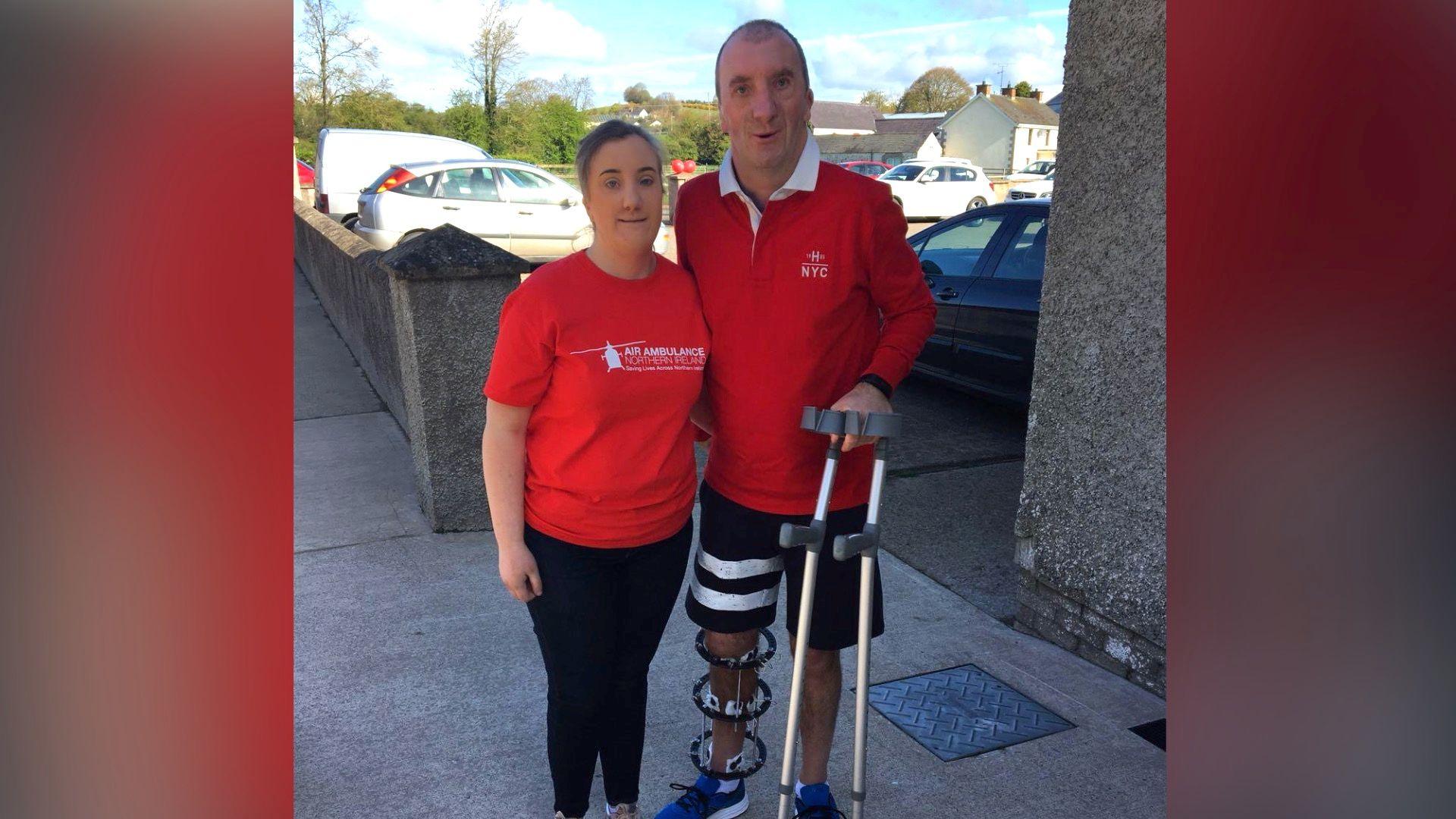
Tom had to learn to bend his knee and walk again
Following the crash, he sustained multiple crushing injuries to his leg and was trapped in the lorry for an hour and a half while emergency services worked to free him.
“I was in a lot of pain and I remember hearing the air ambulance landing and I knew it was serious, but thank god they did, they saved my life,” he said.
The Caledon native needed a number of serious surgeries on his leg.
'I feared the worst'
He said: “I feared the worst and thought I wouldn’t walk again, but I was left in a metal frame right from ankle to my hip, I had to learn how to bend my knee and walk again.
“It meant my working days are over and I have to live with the pain, but you just have to get on with it.”
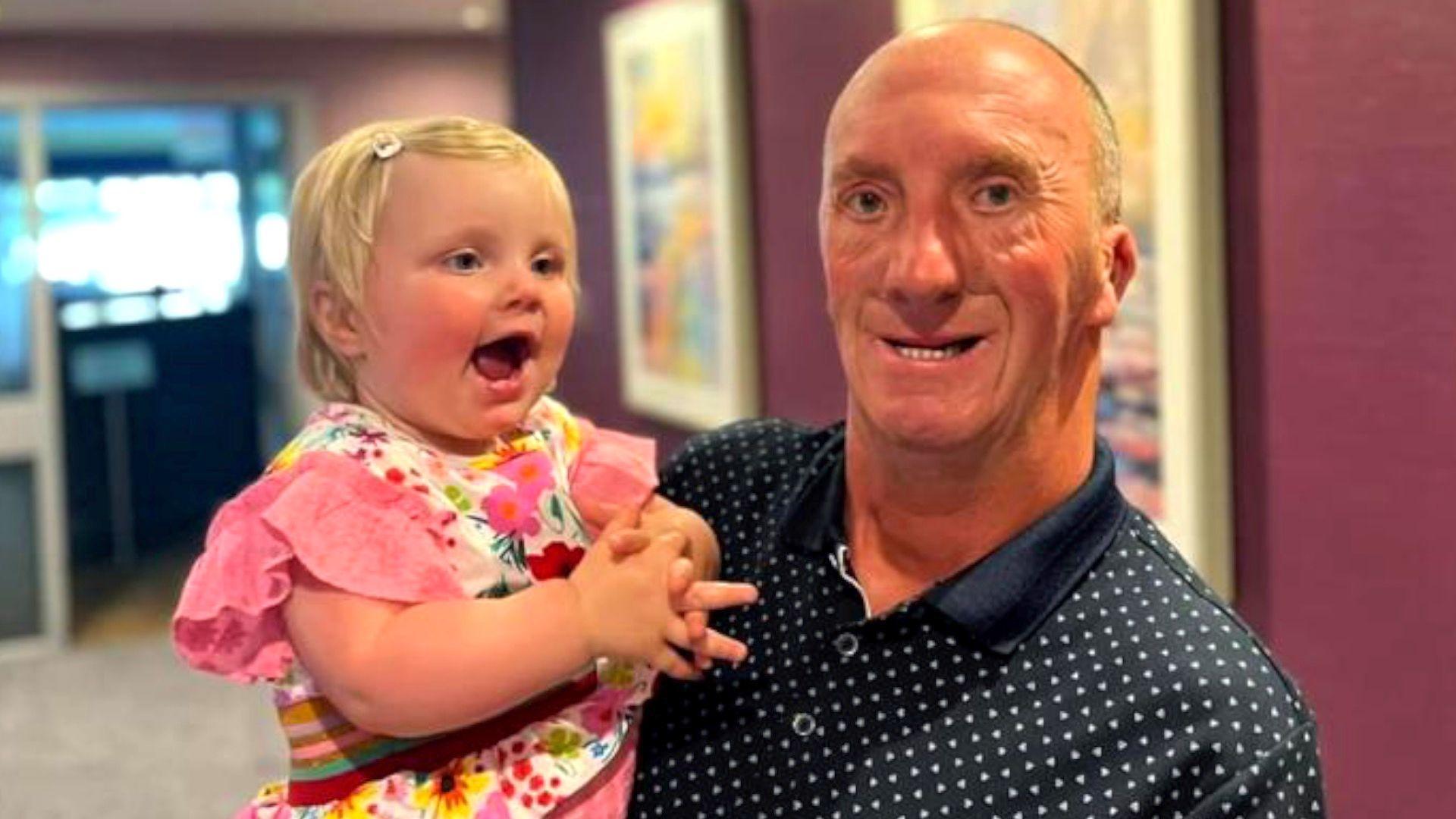
These days Tom enjoys spending time with his granddaughter but has had a long road to recovery
Mr Hadden added: “If my case shows anything, when it comes to rural roads, you have to be so alert when you’re on them, you have to prepare for what’s around every corner.”
Rural roads are defined by police as roads with a speed limit greater than 40 miles per hour that aren’t motorways and dual carriageways.
They make up around 75% of the total road network in Northern Ireland.
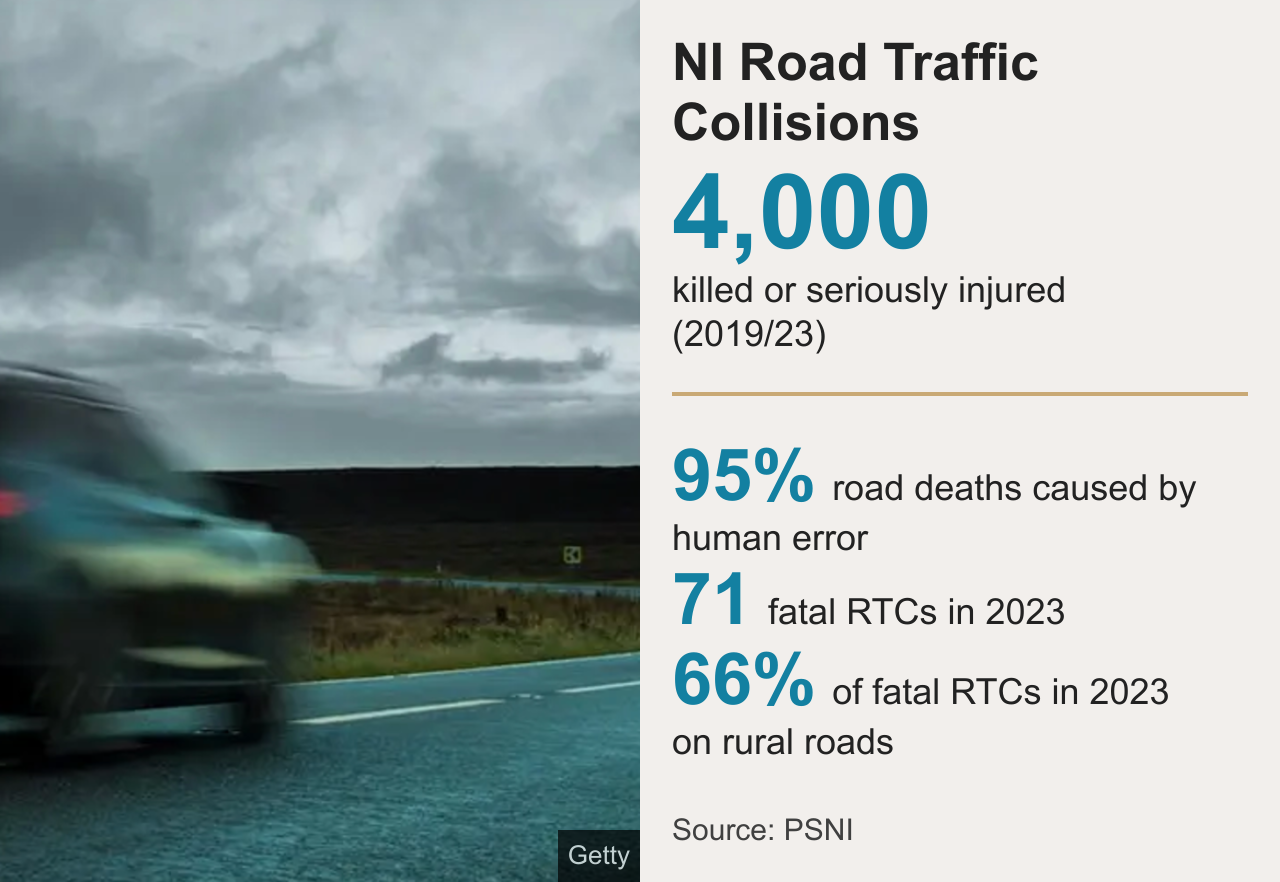
Police publish detailed statistics of road traffic collisions (RTCs) in Northern Ireland
The number of people killed in road traffic collisions on rural roads in Northern Ireland increased by 57% in 2023, compared to 2022.
Phillip McCullagh is temporary PSNI chief inspector in the Mid Ulster policing area.
He said: “The reality is rural roads have their own issues, they’re often narrow, there is slow moving traffic like agricultural vehicles and tight bends, but there’s certain things we can all do to reduce the risk.
“We call it the fatal five - don’t drive if you had alcohol or drugs, don’t use your phone, slow down, make sure everybody in the car has their seat belt on and pay attention to other road users and the road conditions.”
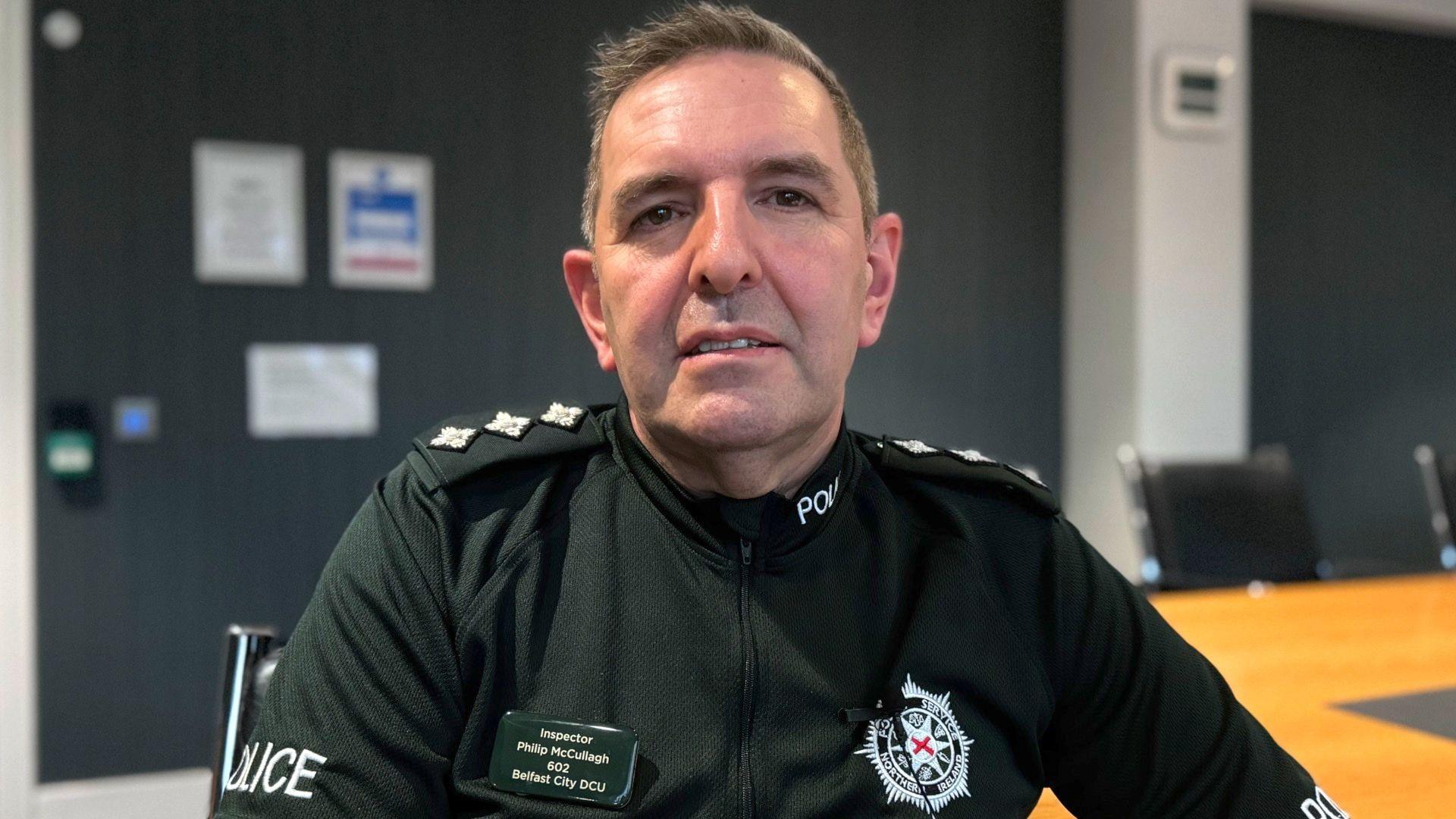
PSNI Ch Insp Phillip McCullagh believes the focus of road safety should be on driver responsibility
Figures for Northern Ireland show young drivers are over-represented in collision statistics.
There were 192 people aged between 16 and 24 killed or seriously injured in road traffic collisions in Northern Ireland in 2023.
There have been calls by some road safety groups to implement Graduated Driver Licensing (GDL) in Northern Ireland.
This would put a set of restrictions on new drivers who have recently passed their practical test for an initial period of time.
The infrastructure minister believes GDL can “deliver significant road safety benefits”.
But John O’Dowd said he is waiting on details on further funding and legislation before making a final decision about its implementation here.
'Broken bodies and broken families'
Dr Jonathan McCrea is from the Northern Ireland Board of the Chartered Society of Physiotherapy.
He believes anything that can be done to improve driver safety has to be seen as a positive.
The physiotherapist of 30 years has lost count of the amount of lives he has seen forever changed by a road traffic collision.
“They lead to broken bodies, broken families and the last thing you want is having to be treated by someone like me, teaching you how to walk and stand again,” he said.
Dr McCrea believes more could be done to educate the public about how to be safer on the road, including encouraging more young people to undertake advance driving courses at an early stage.
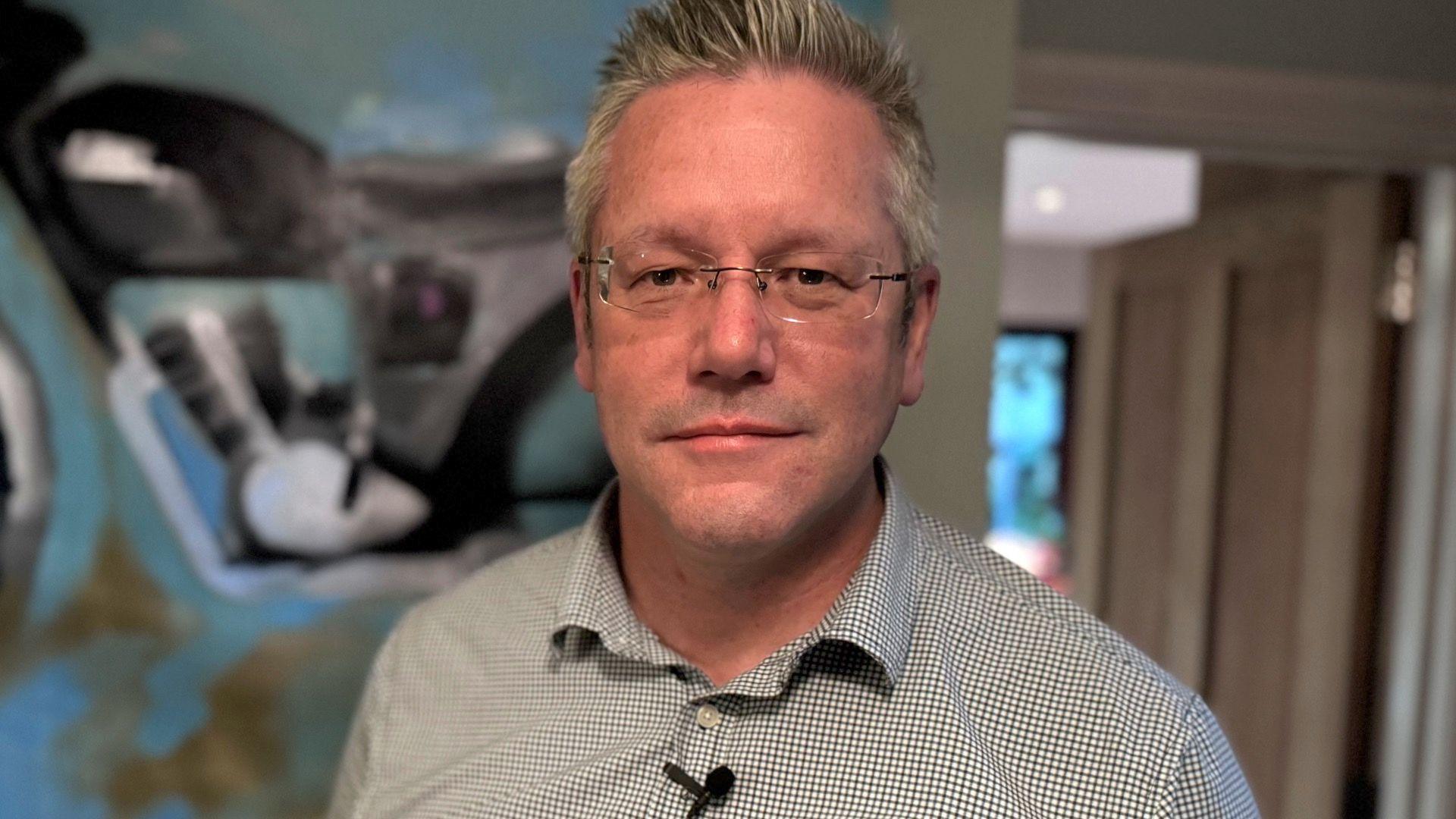
Dr Johnnie McCrea has been a physiotherapist for 30 years
“It’s just about being aware of your environment, so on a rural road it’s regulating your speed anticipating breaking distances and blind corners, it’s in everybody’s hands to preserve their own lives and the lives of other people.”
The Department for Infrastructure have been highlighting the impact on victims during Road Safety Week as part of their Share the Road to Zero initiative.
In a statement to BBC News NI, John O’Dowd said: “I am deeply concerned at the number of deaths and serious injuries on our roads.
“These are mums, dads, sons and daughters who are not coming home to their families whose lives are shattered.
"I appeal to all road users to think about their behaviour. Be mindful of others and proceed with care at all times, to ensure everyone gets home safe.”
He added: “I would encourage everyone to share road safety messaging so it reaches as wide an audience as possible and to talk about it with friends and family –you could be helping to save a life.”